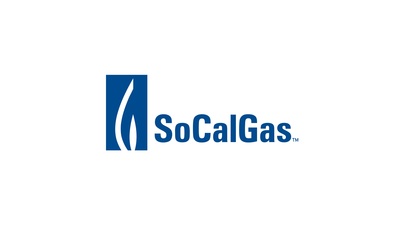SoCalGas, OPAL Fuels, and Young's Commercial Transfer Showcase Conversion of Fleet to Renewable Natural Gas at World Ag Expo
Southern California Gas Co. (SoCalGas), Young's Commercial Transfer (YCT), and OPAL Fuels showcased the transition of YCT's fleet to renewable natural gas (RNG) during the World Ag Expo. YCT plans to increase its natural gas truck fleet from 80 to 110 by March and aims for 75% conversion to RNG by year's end. RNG significantly reduces emissions and offers cost savings. SoCalGas emphasizes RNG's role in California's climate goals and has facilitated the replacement of over 550 diesel trucks since 2014.
- YCT plans to increase its RNG-powered truck fleet from 80 to 110 trucks by March 2022.
- YCT aims to convert 75% of its fleet to RNG by the end of 2023, promoting sustainability.
- RNG reduces emissions and provides operating cost savings for heavy-duty fleets.
- SoCalGas has helped replace over 550 diesel trucks with cleaner natural gas trucks since 2014.
- None.
Insights
Analyzing...
TULARE, Calif., Feb. 8, 2022 /PRNewswire/ -- Southern California Gas Co. (SoCalGas), Young's Commercial Transfer (YCT), one of the largest agricultural trucking companies in the United States, and OPAL Fuels, a leading producer and distributor of renewable natural gas (RNG), are showcasing YCT's commitment to help decarbonize California by transitioning its fleet of heavy-duty trucks to operate on RNG. These ultra, low-emissions trucks are fueled at stations built, owned and operated by OPAL Fuels across the San Joaquin Valley. The RNG will be delivered via SoCalGas' pipeline network. YCT currently has 80 natural gas trucks and plans to increase that to 110 by the end of March. Additionally, YCT hopes to convert 75 percent of its fleet to RNG by the end of 2023. The trucks will be equipped with Cummins Westport 12-liter engines and automatic transmission and have a driving range of up to 600 miles.
RNG is not a fossil fuel, but a lower-carbon fuel, and is produced by capturing methane emissions from organic waste, including landfill sites and dairy farms. When used in transportation end-uses in place of diesel fuel, RNG can provide significant annual operating cost savings (with LCFS and RIN credits) and help reduce the carbon footprint of heavy-duty fleets. In California, RNG used as transportation fuel has increased 177 percent over the last five years and in 2020 alone 1.83 million tons of carbon dioxide equivalent (CO2e) was displaced as reported by the Coalition for Renewable Natural Gas.
Additional RNG refueling stations that use SoCalGas' pipeline network have come online in the central San Joaquin Valley within the last 18 months. The development of these stations has provided critical alternatives in the refueling network along the heavily traveled Highway 99.
"As a Kern County Supervisor and member of the Valley Air Board, I get the chance to study and make decisions regarding energy and air pollution priorities," said David Couch. "I have always advocated for the 'all of the above' approach that utilizes gas and incorporates renewables into a healthy and efficient energy and air quality portfolio. As such, natural gas is an important part of our transportation system for Ag and needs to be part of the solution."
"Being able to represent the AG show as a Tulare County Supervisor and member of the Valley Air Board, I see firsthand how RNG can help reduce emissions," said Amy Shuklian. "Improving public health and creating jobs are also positive outcomes."
In California, transportation accounts for more than 41 percent of greenhouse gas emissions and 80 percent of smog-forming pollution in the state, with heavy-duty trucks among the largest polluters, according to California Air Resources Board data.
"RNG is rapidly becoming mainstream in the San Joaquin Valley, and it's being adopted by organizations of all sizes," said Gillian Wright, senior vice president and chief customer officer at SoCalGas. "California companies like YCT working towards carbon neutrality will help accelerate the state's climate goals."
"Our trucks run over 18 million miles every year, which makes us uniquely positioned to affect the air quality problem in California," said Scott Daniel, president of YCT. "As the first link in the CA food chain, we look forward to leading our AG Partners into a new sustainable future."
"We are proud to help enable YCT's effort to decarbonize their fleet while simultaneously driving cost savings through adoption of ultra-low carbon renewable natural gas," said Scott Edelbach, executive vice president of sustainable transportation fuels at OPAL Fuels. "While the U.S. transportation sector is one of the largest emitters of CO2, RNG is proof that there does not have to be a tradeoff between doing what's best for your business and doing what's best for the planet."
As part of its efforts to reach its goal of net zero emissions by 2045, SoCalGas is focused on solutions to help reduce emissions in hard-to-abate sectors, including heavy duty transportation. Clean fuels such as RNG and hydrogen are important components of any solution to decarbonize hard-to-electrify parts of the California economy. A new economy-wide technical analysis, released by SoCalGas, describes how repurposing existing gas infrastructure to deliver clean fuels, like RNG, and manage carbon can help the state reach carbon neutrality more affordably and with less risk than other pathways.
SoCalGas has worked with fleet owners to secure millions of dollars in incentive funding for the replacement of diesel trucks with cleaner, near-zero emissions natural gas trucks. Since 2014, the utility has helped truckers and trucking companies replace more than 550 diesel trucks with cleaner natural gas trucks.
Last year SoCalGas received the 2021 NGV Achievement Award in the Utility Leadership category. The award, presented by NGVAmerica, recognized SoCalGas' outstanding contributions to the advancement of natural gas as a transportation fuel.
About SoCalGas
Headquartered in Los Angeles, SoCalGas® is the largest gas distribution utility in the United States. SoCalGas delivers affordable, reliable, and increasingly renewable gas service to 21.8 million consumers across 24,000 square miles of Central and Southern California. Gas delivered through the company's pipelines will continue to play a key role in California's clean energy transition—providing electric grid reliability and supporting wind and solar energy deployment.
SoCalGas' mission is to build the cleanest, safest and most innovative energy company in America. In support of that mission, SoCalGas is committed to the two goals of achieving net-zero greenhouse gas emissions in its operations and delivery of energy by 2045 and replacing 20 percent of its traditional natural gas supply to core customers with renewable natural gas (RNG) by 2030. Renewable natural gas is made from waste created by dairy farms, landfills, and wastewater treatment plants. SoCalGas is also committed to investing in its gas delivery infrastructure while keeping bills affordable for customers. SoCalGas is a subsidiary of Sempra (NYSE: SRE), an energy services holding company based in San Diego. For more information visit socalgas.com/newsroom or connect with SoCalGas on Twitter (@SoCalGas), Instagram (@SoCalGas) and Facebook.
![]() View original content to download multimedia:https://www.prnewswire.com/news-releases/socalgas-opal-fuels-and-youngs-commercial-transfer-showcase-conversion-of-fleet-to-renewable-natural-gas-at-world-ag-expo-301477972.html
View original content to download multimedia:https://www.prnewswire.com/news-releases/socalgas-opal-fuels-and-youngs-commercial-transfer-showcase-conversion-of-fleet-to-renewable-natural-gas-at-world-ag-expo-301477972.html
SOURCE Southern California Gas Company








